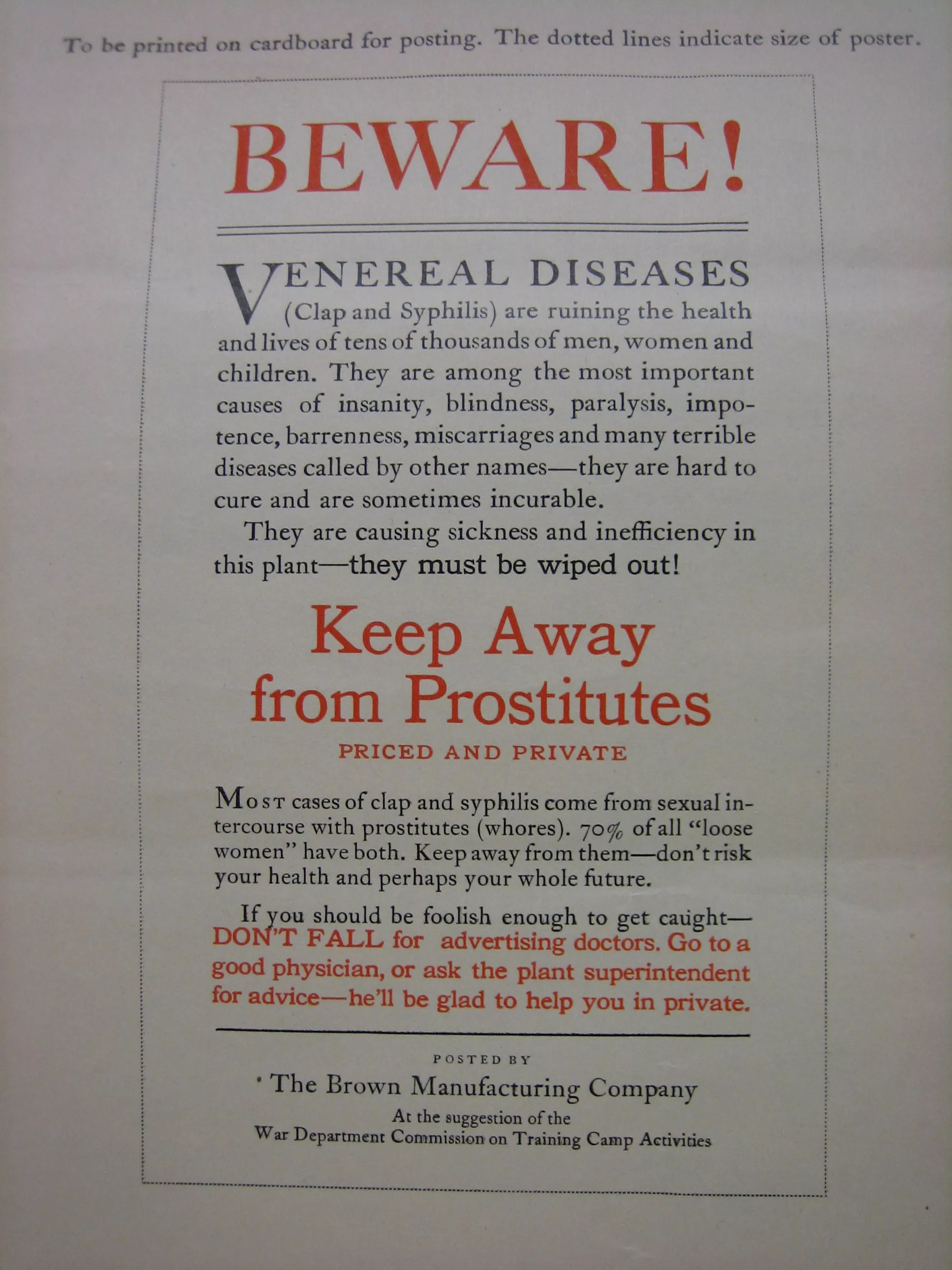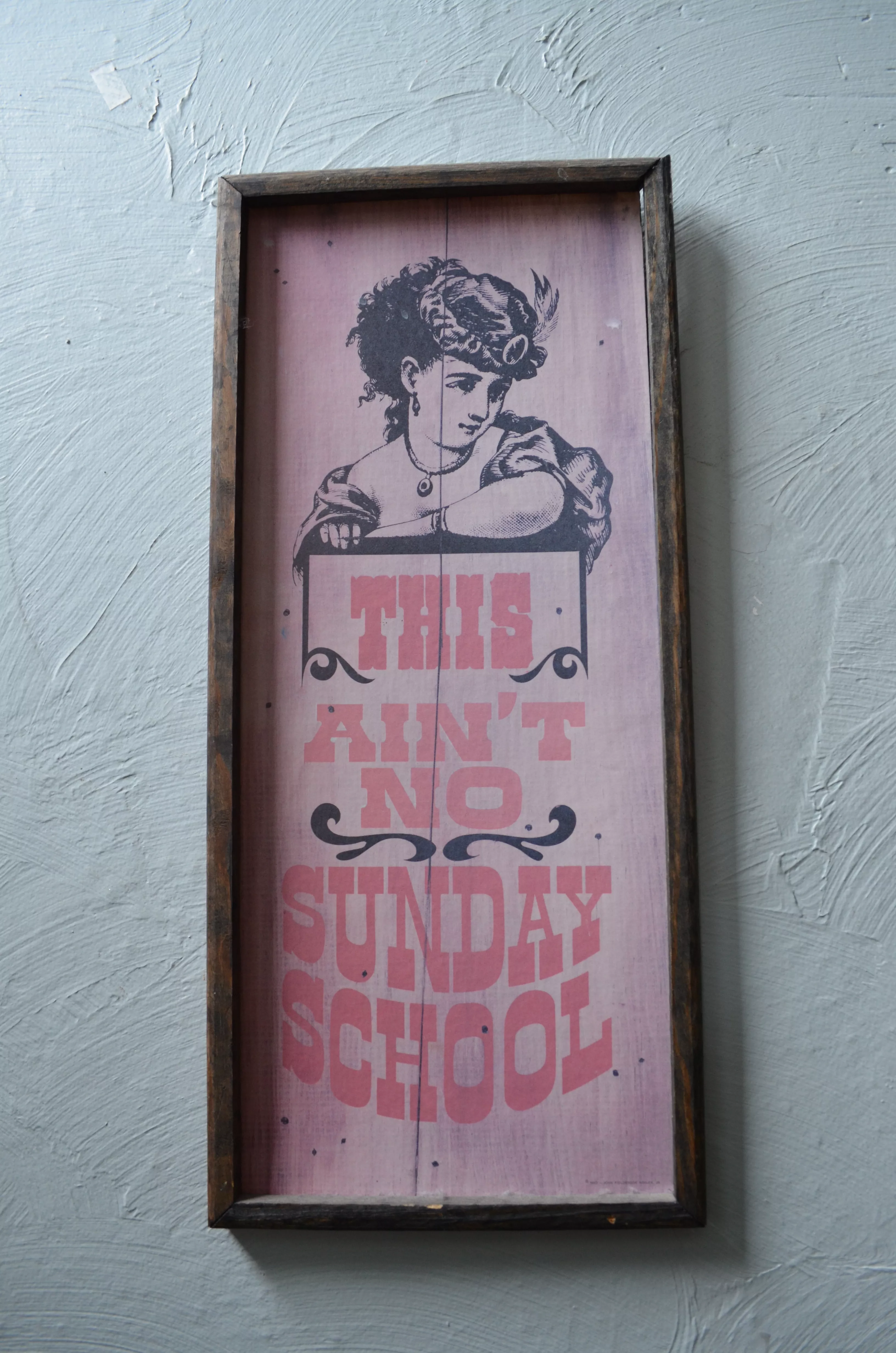Two related thoughts, questions and meditation:
— I went to a party last night and ended up having a great conversation that had me thinking about my research from the angle of common law or accepted custom. Used to be, in Idaho, if you lived with someone for ten years you were considered married to that person via “common law.” They have since done away with this convention, but some states still have it in place, I think.
— I didn’t know this until last night, but there are other examples of common law or custom being accepted practice–the UDHR, apparently, is one [declaration without teeth] instance that the international community has basically agreed should be a goal for a perfect world.
— In said perfect world, would anyone choose to be a sex worker?
Seems to me that in cases like Wallace, where there has been a century of tradition built up to indicate community support for open secret yet extralegal economies like the sex trade and gambling, local custom should be the law, despite what is written into code and despite what the state or federal government dictate. That is, of course, why the sheriff was never convicted under the so-called RICO act during two trials: the defense successfully argued that he was being scapegoated and any other sheriff would have done the same or else been voted out of office (“that was just the way things worked in Wallace”). There was no need for corruption. The mafia was effectively shut out of the community through local agreement and regulation (although it’s probable some of the women who cycled through Wallace were recruited into the profession in other places through pimps who were involved in organized crime).
Shouldn’t accepted custom be the law of the land, in self-regulating communities? Why is it that outsiders think they know what’s best and come in to change things? Economics and morality, I think. Somebody always wants a piece of the action. And others think they are justified in enforcing their morals on other people.
Putting aside the question of the federal and/or state government wanting a piece of the economic action or else perhaps just being bored and wanting to flex their muscles and control or dominate, I want to address the morality part:
— I don’t think there is anything morally wrong with prostitution. Call me crazy, but I think we should be able to do what we want with our bodies, as long as it’s not infringing on other people’s rights. Public health and safety has always been the case against that, but let’s say the sex workers get regular health check ups, use condoms, and the patrons understand the risks they assume, it’s not really drastically different from eating out at a restaurant where you might get food poisoning or taking a whitewater rafting trip where you might drown, right?

— That said, it’s probably the case that most people who are currently sex workers feel *economically coerced* (I use this phrase to differentiate between choice and “choice” that doesn’t feel like a choice) into the profession. In part because it’s underground/illegal and or stigmatized, the wages for sex are high and pull people in who perhaps wouldn’t otherwise choose to participate. So I would say that it’s possible some percentage of sex workers would choose other professions if they didn’t feel pressured in some way (by debt, or lack of education coupled with the need to support children, or addiction). And these other pressures indicate the presence of social problems we need to resolve.
— But let’s say we’ve resolved those social problems that cause some to feel coerced into sex work. Let’s say we’ve done away with the stigma and made it legal. Would people still “freely choose” (insofar as we humans are compelled to act as though we have choice, and given the privilege of living in a circumstance under conditions we call freedom) to become sex workers? Would prostitution, the oldest profession, as they say, continue to exist?
— I say yes, people would still choose sex work as a profession, even in a perfect-ish world, for the same reasons anyone chooses any profession, because they have a talent and a passion for it and/or it brings meaning to their life.
For possible future meditations:
Think about this question specifically in the case of Wallace.
Think about this question in global terms: Is there research on gender distribution generally (are women more often offering and men more often patronizing)? Comparisons across countries? Does legal sex work affect demand for the non-consensual sex trade and trafficking market (making a possible moral case for intervention)?

Leave a Reply